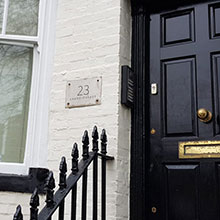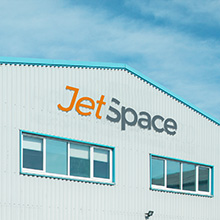
The Workspace of the Future
What Will Office Design Look Like in 10-20 Years’ Time?
The modern office is undergoing a major evolution. While many core elements like desks, meeting rooms and basic amenities will remain, the overall look, feel and functionality of workspaces is changing dramatically. As we enter a new era of work shaped by factors like remote and hybrid arrangements, a desire for flexibility and an emphasis on employee health, wellbeing and engagement, offices must adapt. Here are some of the biggest trends that we predict will define the workspace of the future.
Wellness Amenities Take Centre Stage
Today’s employees expect more from their office environment than just a place to get work done. They want spaces that support physical and mental health. Thus, wellness amenities will become ever more important in the workspace of the future. Think fitness centres, quiet rooms, nap pods, healthy snacks and even designated spaces for activities like yoga. Natural light, greenery and ergonomic furnishings will also promote employee health and happiness. With a rise in remote work, offices must be desirable places that workers actively want to utilise. Wellness amenities provide that appeal.
We can already see many of these amenities in the flashy corporate headquarters of big tech brands like Google and Apple but expect to see the focus on wellbeing become more commonplace even for smaller businesses, whether operating from their own premises or utilising wellness-focused serviced offices.

Biophilic Design Brings Nature In
Incorporating nature into built environments will be integral to future offices. Living walls, indoor gardens, natural materials and ample sunlight help connect us to the outdoors. Research shows this reduces stress, enhances creativity and focus and boosts overall wellbeing. From lounge areas surrounded by plants to meeting rooms with organic walls, nature will be interwoven throughout the workspace of the future. Even virtual elements like video window views of lush natural scenery and accompanying background nature sounds can have a positive biophilic impact.
Whilst fake shrubbery can help to brighten up an otherwise drab space, it’s the importance of living, breathing plants that serves as the focus of biophilic design. This is why natural light and automated watering systems will be increasingly important in future workspace design.
Smart Technology Enables Efficiency
Smart office technology may not be new but it’s only getting smarter and more prevalent. Occupancy sensors, advanced heating and ventilation systems, voice controls and dynamic digital signage allow for greater efficiency and connectivity. Room booking systems, hot desk finder apps, virtual receptionists and more enable flexible use of space as employees shuffle between home, office and third spaces. Offices will tap technology to create more seamless, personalised and productive environments.
This will also help optimise the occupancy of buildings so spaces aren’t overcrowded or underutilised.
Sustainability Is Non-Negotiable
Eco-conscious buildings and workspaces are already popular, and sustainability will only grow as a priority. The offices of the future will aim for net zero emissions, utilising renewable energy sources, locally sourced building materials and waste reduction features like smart sensors and composting. Reusing or upcycling existing furniture also lessens environmental impact. With climate change concerns mounting, green design and operation practices have already become non-negotiables.

Flexible, Adaptable Spaces Support Agility
As more companies embrace location flexibility, offices will shift to become more adaptable spaces that can be adjusted based on changing needs. Neighbourhood co-working spaces allow for local flexibility whilst within larger offices, movable walls, multi-use furniture and reconfigurable open space promote agility.
Modular components let companies reorganise to accommodate teamwork, focused work, meetings and other different functional needs. The future workspace will need inbuilt adaptability to respond to an increasingly agile workforce, particularly as we better understand the differing needs from one employee to the next. Just because a busy open-plan environment works well for one person, doesn’t mean it’s going to provide the most productivity conducive environment for all.
Creative Design Fosters Innovation
Offices will need to get a lot more creative in their designs to attract talent and foster innovation. Warm, welcoming and non-traditional elements reflect emerging workplace cultures while stimulating new ideas. Think splashy colours, wall graphics, stadium seating, recreation zones and quirky common spaces. Standing desks, huddle areas and open cafe-style collaboration space can complement private rooms for focused work. The future workspace should feel more fluid and dynamic – an energising space where people want to create and collaborate.
The workspace of the future must meet a spectrum of next generation needs – from flexibility and wellbeing to sustainability and creative inspiration. While specific implementations will vary across companies, industries and building types, the overarching themes are clear. The modern office will become much more human-centred: designed for humans, by humans, to support humans. What matters most is not any single amenity or trend, but creating holistically nurturing environments where people and organisations can thrive.
If you’ve been looking at changing your organisation’s working environment, why not get in touch with JetSpace to discuss current availability in our serviced offices in Brighton and Shoreham? You’ll find great amenities in our excellently located spaces suitable for flexible businesses of all varieties.
Call on 01273 917977 or complete our enquiry form
enquire book a viewing

